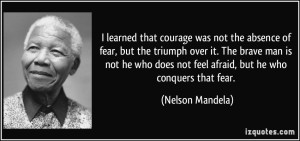The Apostle Paul coaching his young protege instructs him on restlessness and rebellion in leadership roles. Paul gives his instruction in 1 Timothy 6:7-10 with a clear reminder of priority; “For we brought nothing into the world, so we cannot take anything out of it either…” [NASB].  It is amazing how quickly we lose sight of key priorities in life. We become distracted.
It is amazing how quickly we lose sight of key priorities in life. We become distracted.
Consider the definitions of contentment and complacency. Contentment is a feeling or showing satisfaction with one’s possessions, status, or situation. Complacency is a self-satisfaction when accomplished by unawareness of actual dangers or deficiencies. Both of these definitions can lead to satisfaction. Both can lead to an enjoyment of status. However the key difference between these are what separates good leaders from great leaders. Contentment leads to thankfulness to God for everything. Complacency congratulates self for everything. Complacency rests on its accomplishments. Contentment pursues excellence and growth.
1 Timothy 6:7-10: 7 For we have brought nothing into the world, so we cannot take anything out of it either. 8 If we have food and covering, with these we shall be content. 9 But those who want to get rich fall into temptation and a snare and many foolish and harmful desires which plunge men into ruin and destruction. 10 For the love of money is a root of all [a]sorts of evil, and some by longing for it have wandered away from the faith and pierced themselves with many griefs.
As you ponder this ancient wisdom for modern times consider these life lessons on contentment and complacency.
Contentment
- Live in the reality of your current blessing instead of constantly striving for more in your life. You will never enjoy what you have if you are always looking for more.
- When you are content you are liberated to applaud other people’s success without the slightest bit of envy or jealousy. You become one of the loudest cheerleaders for other people.
- With contentment you are free to be absolutely grateful for your many blessings. Living in this manner will allow you to acknowledge future blessings as gifts as opposed to an “It’s about time” attitude.
Complacency
- Decide to make everything else in your life essential beyond the need for food clothing, and shelter. Don’t get me wrong, I am not implying that it is wrong to improve your lot in life. The problem is when your attitude and perspective changes as a result of acquiring more.
- When you decide to increase your income as your primary focus in life is when you start to become ineffective in your current career.
- Make the decision to keep your money and possessions instead of releasing them. As soon as you clutch your possessions tighter, your possessions begin to clutch you tighter.
Which type of leader are you striving to become? How would you describe contentment in your life? Leave a comment below or share this article on FB or Twitter. Thanks!








